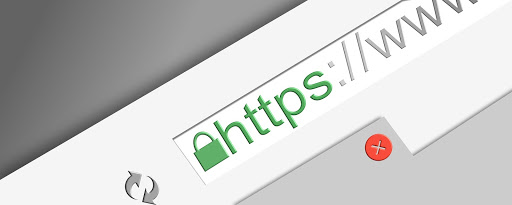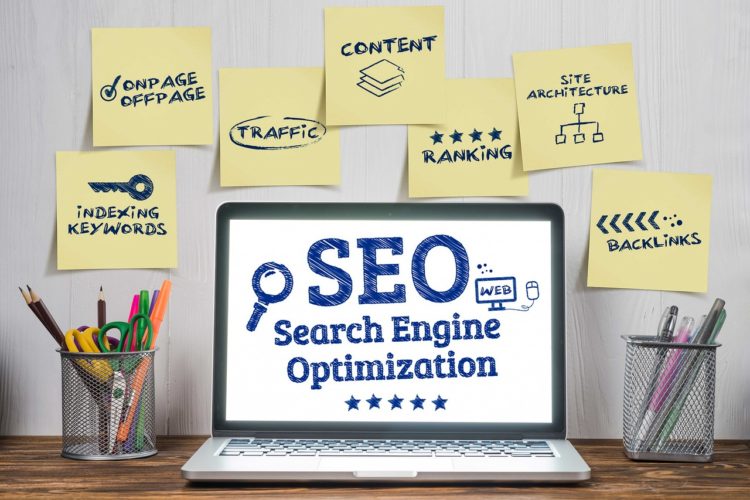Business owners and Christian churches want to drive traffic to their websites, create brand awareness and generate more customers or congregation members. One of the best ways of gaining Internet visibility is by having good search engine optimization.
With more than 71,000 Google Searches per second, and the top three search pages gaining more than 50 percent of the traffic, having good SEO is a must. After all, you want to be visible and let your target audience see you every time they make a search inquiry.
You should eliminate things that could hurt your SEO because these hurtful things lower your ranking in Google results. In short, anything that’s not user-oriented or does not improve users’ experience could hurt your Google ranking.
But there’s more to it. In this article, you’ll discover the 10 things that could be hurting your SEO.
-
Comment Spam
Comments are a great way of engaging with and getting feedback from your parishioners and members. But what’s terrible is comment spam.
Here’s how it works.
Some website owners use black hat SEO to boost their ranking in search engines and drive traffic to their site. In such cases, they use automated bots to post spam comments across several websites.
If you’re unlucky, your site would be hit. When these poor-quality comments are found on your site, Google will penalize you. Sometimes, your rivals may link your site to spammy websites.
To regulate these issues and stop irrelevant comment spam, use e-mail notification to preview every comment before approving it. Also, a good spam filter would go a long way to curbing these problems.
Alternatively, your web developer should disable links in the comment section of your site.
-
Broken Images and Links
Whenever a visitor follows a link to or from your website, they expect to be directed to another piece of content. However, in some cases, they’ll get a 404 error.
Broken links not only hurt your SEO but also diminish the user experience. To fix this problem, you need to audit your inbound and outbound links regularly. If you have a small site, tools like Check My Links would be of great benefit while a tool like Ahrefs is ideal for large sites. You can also identify broken images with a tool like ScreamingFrog.
Because you don’t have control of inbound links, there are things you can do to prevent broken links on your website. Don’t remove content. Instead, update your pages/posts at the same URL. Alternatively, if you want to restructure your URL, you can set up a 301 redirect to redirect the traffic.
-
Slow Webpage Load Time

Web pages with a load time of more than three seconds experience a high bounce rate. And the higher the bounce rate of your site, the lower your ranking. You can boost your webpage speed by using optimized images, browser cache, and resource compression. Furthermore, you can use tools like PageSpeed Insights and WebPageTest to test your webpage speed.
-
Cheap or Free Web Hosting
You may not know this, but the hosting services you use affect your SEO. Yes, using cheap or free web hosting services is quite tempting. However, web hosting isn’t as simple as you’d think. By using free or cheap web hosting services, there’s a high chance that you’ll hurt your site authority and by extension, your SEO.
Here’s how it works.
Compare these two IP addresses.
You’d see that all the figures are identical except the last two digits, showing that these IP addresses are related. Because they’re identical, the authority of one website would affect the other. The relationship is not a bad thing if a good website is influencing your site.
Here the two sites are authority websites — Disney and ABC.
When you use free or cheap web hosting, your site will be lump together with other websites using the same services. That means your website ranking would be affected by lots of other sites you don’t know.
Therefore, it’s much safer to invest substantially in your web hosting or host your site privately.
-
Short Content
The good thing about short content is that they’re quick and easy to write. On the flip side, short content hurt your SEO. Here’s a graph that shows the relationship between search position and content length.
You see, top ranking content ranks above the 1,000 words mark. And content below 800 words seems not to be doing quite well. Therefore, you should spend more time crafting quality content.
Although this strategy might seem stressful, the results are worth it. And do not sacrifice quality over quantity. To determine the perfect content length, you need to know the number of word counts you can churn out while maintaining high quality.
-
Keyword Stuffing
Proper use of keywords plays a vital role in your site ranking. However, when you stuff keywords into your content, things start to go sour.
Put, keyword stuffing is the inclusion of a large number of exact match keywords into your content. This strategy is awful, and it reduces your content quality. Also, Google penalizes online marketers who stuff their content with keywords.
To avoid this tragedy, you should include keywords in your content until the point where the words stop flowing naturally. Moderation of keywords is vital and will save you lots of headaches.
You also want to include the keywords naturally in a sentence. If they sound forced, Google will consider them stuffed and rank lower.
-
Lack of Anchor Text
Have you ever inserted internal links without using anchor texts? Well, you’re doing it the wrong way, and you might pay for it with lower rankings. From a marketing perspective, if you use a call to action buttons like “click here” as your links, you’d get more clicks.
However, from the SEO lens, it’s a total waste, and it adds no value to your SEO. For instance, when you write a blog post and you want to link it to your service page, use the anchor text “web design services.”
In cases where a call to action is needed, always try to include relevant anchor texts. Here’s how the full anchor text could look: “click here to learn more about digital marketing services in Los Angeles.”
-
Repetition of the Same Anchor Text
Aside from the absence of anchor text, one major factor that could hurt your SEO is the use of identical anchor text for every internal link. This strategy looks like you’re trying to outsmart search engines. Also, your visitors may see it as a sales way of driving traffic. When using anchor texts, customize them and use variations of the text.
-
Poor Quality Content
One way of creating poor quality content is by using article spinners. Yes, the article will look unique and properly optimized, but your visitors are humans. And they’ll know if your content is valuable.
Furthermore, the use of poor content will make you lose credibility and trust, which may be hard to regain. Next time you want articles on your site, hire good writers that will deliver high-quality articles.
-
Link Quantity Vs. Link Quality
Having a high number of links is good, but you should focus on the quality of links. Getting one link from an authority site is more beneficial than thousands of links from mediocre sites. As a rule of thumb, you should use links that:
- Are relevant to your industry and site
- Are not connected to gaming, adult or pharmacy sites
To ascertain the quality of your links, use tools like SEOquake.
Improving Your SEO Is Easy
SEO is pretty complicated. But there are things you can do today to improve it. Eliminating comment spam, keyword stuffing, poor content, and short content will get you on the right path. Also, you can focus on quality links, customizing your anchor texts, investing in your web hosting and boosting your web load time.
Yes, other things could hurt your SEO. But these 10 mistakes are common among business owners and churches looking for increasing their Internet presence.


